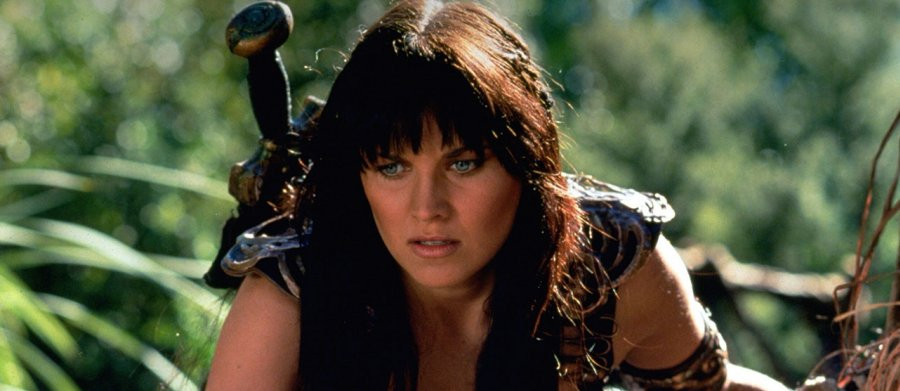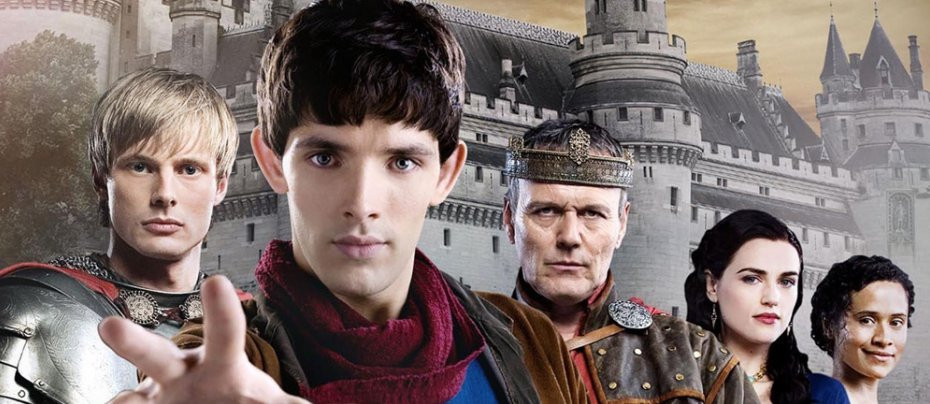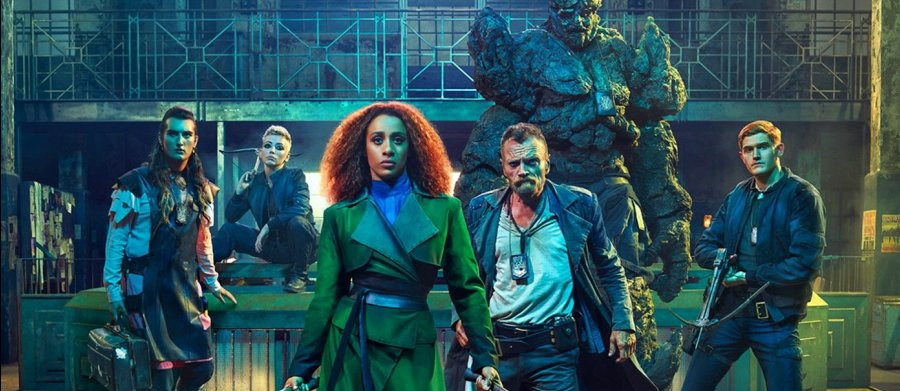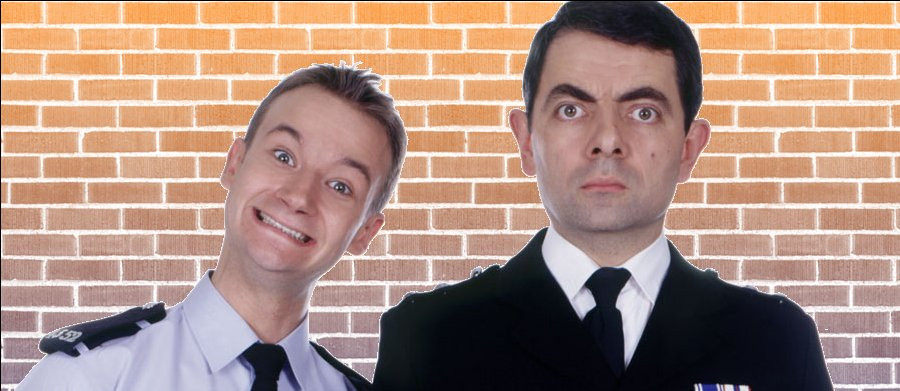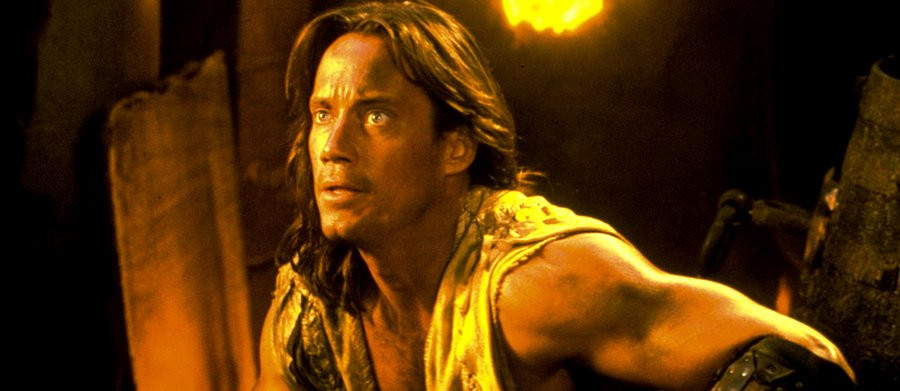
Hercules: the Legendary Journeys
1995 - United StatesIn the mid Nineties, Universal, a studio with a long tradition of producing relatively low cost television and film, launched the "Action Pack," another of its attempts to build a franchise for syndicated television. Syndicated television - as opposed to network television - is usually seen as the lower end of the American market, so this was never going to be a prestige project.
Among the producers approached by Universal were Sam Raimi and Rob Tapert, who had established themselves as the Kings of low budget production by making 'The Evil Dead.' They were given the commission to make five "TV movies" about the biggest name in Greek mythology, Heracles - using the more familiar Roman version of his name, Hercules.
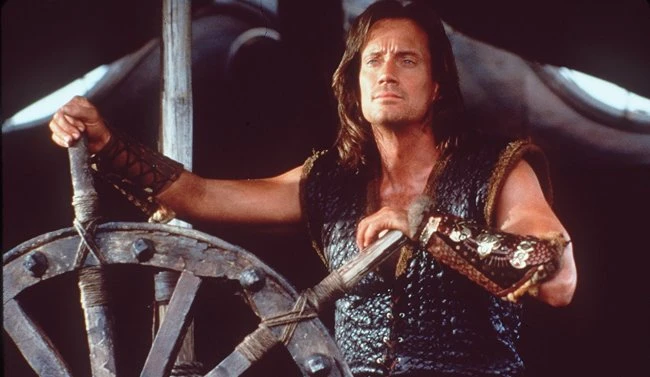
Raimi and Tapert realised that they could not make a Hollywood epic on Universal television money, so they looked abroad for countries with an established film industry and a favourable exchange rate in order to cut costs. For some reason they hit on New Zealand, previously "terra incognita" to the American film industry. It was the best decision they ever made.
As the eponymous hero, they cast the inexperienced but likeable Kevin Sorbo, hitherto best known for a series of advertisements for Jim Beam bourbon. All in all, it did not look as if they were aiming for a high quality product.
Yet those initial movies proved such a ratings success that they led to a television series, which ran for six seasons and which in turn spun off two other series, the forgettable Young Hercules and the much better known Xena: Warrior Princess.

Why? The unexpected popularity of this cut price 'Hercules' seems like a perfect illustration of William Goldman's "nobody knows anything." The production values and CGI now look distinctly shoddy, and the plotting was usually formulaic. Hercules would come to a place where bad people were causing problems and solve those problems by hitting the bad people. There were some interesting "format breakers" and even a few attempts at darker episodes, but Sorbo could never really do dark, at least not for long.
That is in fact probably one of the main reasons for the show's success. We all know people who are slightly irritating because they seem so perfect - they are good looking, popular, easy going, and athletic, and everything comes naturally to them because the world loves them and appears to go out of its way to smooth their path - and the most irritating thing of all about them is that we cannot help liking them ourselves. We want to spend time in their company. Such is the Sorbo Hercules.
The Sorbo Hercules might also say something about how Americans wanted to see themselves, their country, and the wider world around that time. The Nineties were, for most people, a period of great optimism. The Berlin War had fallen but the Twin Towers were still standing. The internet was beginning to give hints of its potential for global communication and the spread of knowledge, while its dark side was still generally invisible. People felt good expressing concern for the environment without being positively afraid yet.

In this context, it is not hard to understand the significance, or appeal, of Sorbo's All-American Hercules - possibly the most Nordic looking Greek ever - well-meaning if not overly bright, wandering around the idyllic landscapes of the North Island, helping grateful multi-ethnic peasants, preferring to talk but strong enough to fight.
A similar ethos prevails in Sorbo's later Andromeda, which was basically 'Hercules in Space' - but by then the world had changed and things were beginning to look a bit more complex.
Back in the Nineties, all was bright and cheerful and colourful and optimistic, and happy endings were possible and everything looked like New Zealand.
The novelty of beautiful landscapes that were not Southern California was perhaps the greatest reason for HLJ's success and its most significant legacy. It really opened the eyes of a generation of American producers to the possibilities of production abroad, and to New Zealand in particular. Since HLJ stuck mainly to the North Island, one can only imagine their joy when they discovered that there was also a South Island and that it looked even better.
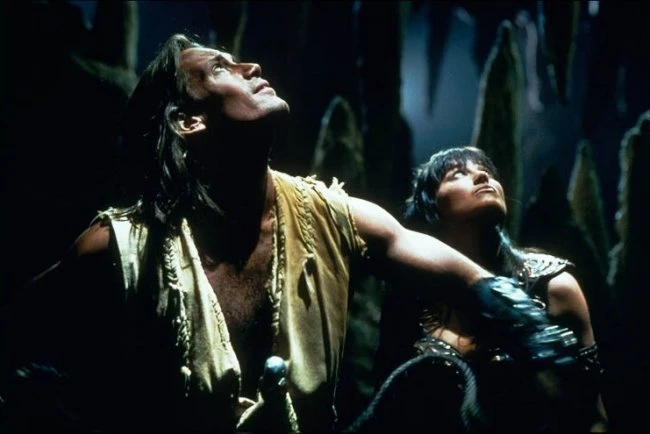
Raimi and Tapert's positive experience in New Zealand seems to have been a major factor in the decision to film 'Lord of the Rings' there. Many of the people who worked on both sides of the cameras in LotR had learned their trade on 'Hercules' and 'Xena.'
So every nation or region since boosted by being the base for a major American production - like Game of Thrones in Northern Ireland - owes more than it might realise to this amiable Nineties throwback, as does the entire New Zealand tourist industry.
About the reviewer: John Winterson Richards
An experienced freelance writer as well as a consultant, John Winterson Richards has been commissioned and paid to write over 500 articles in print and online. He was a regular guest on the Mind Your Own Business podcasts and a major contributor to that website's blog.
He is the author of 'The Xenophobe's Guide to the Welsh'and the 'Bluffer's Guide to Small Business.'
Under the name Charles Cromwell, John is the author of three novels, 'Young Herod,' 'Seven Days in Jerusalem,' and 'Leonardo Investigates: Death in Pisa.' All can be downloaded from Amazon.
He is the co-writer, with Andrew Harman, past Head of History at Filton High School, of 'The Context of Christ: the History and Politics of Judea and Rome, 100 BC - 33AD', also available on Amazon Kindle.
Seen this show? How do you rate it?
Seen this show? How do you rate it?
Published on October 29th, 2019. Written by John Winterson Richards for Television Heaven.



